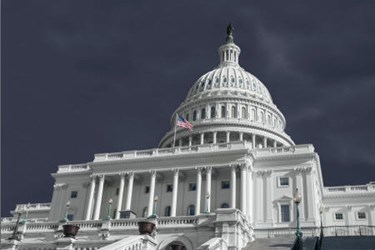HIT Regulations Called For

By Christine Kern, contributing writer

Supporters argue that true regulation certainty only possible through legislation.
Recently, The Food and Drug Administration (FDA), Office of the National Coordinator for Health Information Technology (ONC), and the Federal Communication Commission (FCC) held a public workshop entitled “Proposed Risk-Based Regulatory and Framework and Strategy for Health Information Technology.”
The FDA, ONC, and FCC were seeking broad input from stakeholders and experts on the FDASIA health IT report that contains a proposed strategy and recommendations on an appropriate, risk-based regulatory framework for health IT that promotes innovation, protects patient safety, and avoids regulatory duplication. At that workshop, Health Data Management reports stakeholders asserted that drafted recommendations for a risk-based health information technology regulatory framework that true regulation certainty can only come from congressional legislation.
Recommendations from the three government agencies expressly state the framework and priority areas contained in the report "are not binding" regulations and "do not create new requirements or expectations for affected parties." Some stakeholders consequently made their case that a law passed by Congress is necessary to provide the relative permanence that legislation affords.
Dan Haley, VP of government and regulatory affairs for vendor athenahealth Inc. explained, "The draft report in the end is a statement of present regulatory intent. Simply put, a statement of present regulatory intent does not and cannot provide regulatory certainty. For all the excellent and encouraging language in the draft, in the end absent congressional action to codify its recommendations, what the agencies are asking of industry is that we trust not only that the human beings currently making regulatory policy will stick to their own recommendations over time, but that their successors will share their perspective as well. That isn't certainty. It's the opposite. It's a leap of faith."
Further, Haley added, "My understanding from previous presentations since the draft was released is that the agencies do not believe they need, nor do they necessarily want, congressional action to implement the recommended framework." Mike Marchlik, VP of quality assurance and regulatory affairs at McKesson Technology Solutions, posed a similar argument, pointing to the need for legislation.
An opposing view came from Bakul Patel, senior policy advisor for the FDA's Center for Devices and Radiological Health, who asserted that regulatory flexibility is critical to keep up with rapidly changing health IT, and that rigid legislation would not allow it.
Meanwhile, Athenahealth’s Haley argued that "statutory certainty doesn't preclude regulatory flexibility. Congress can draw broad lines to establish the outer parameters of agency authority and discretion without micro-managing those finer lines that FDA and the other agencies should properly be charged with drawing within those parameters."
Both athenahealth and McKesson support H.R. 3303, the Sensible Oversight for Technology Which Advances Regulatory Efficiency Act, establishing three distinct categories of health IT – medical software, clinical software and health software. The legislation calls for the FDA to continue to regulate the highest risk category of “medical software” and charges Congress and the Obama administration with collaborating in the development of a new risk-based regulatory framework for “clinical” and “health” software.
